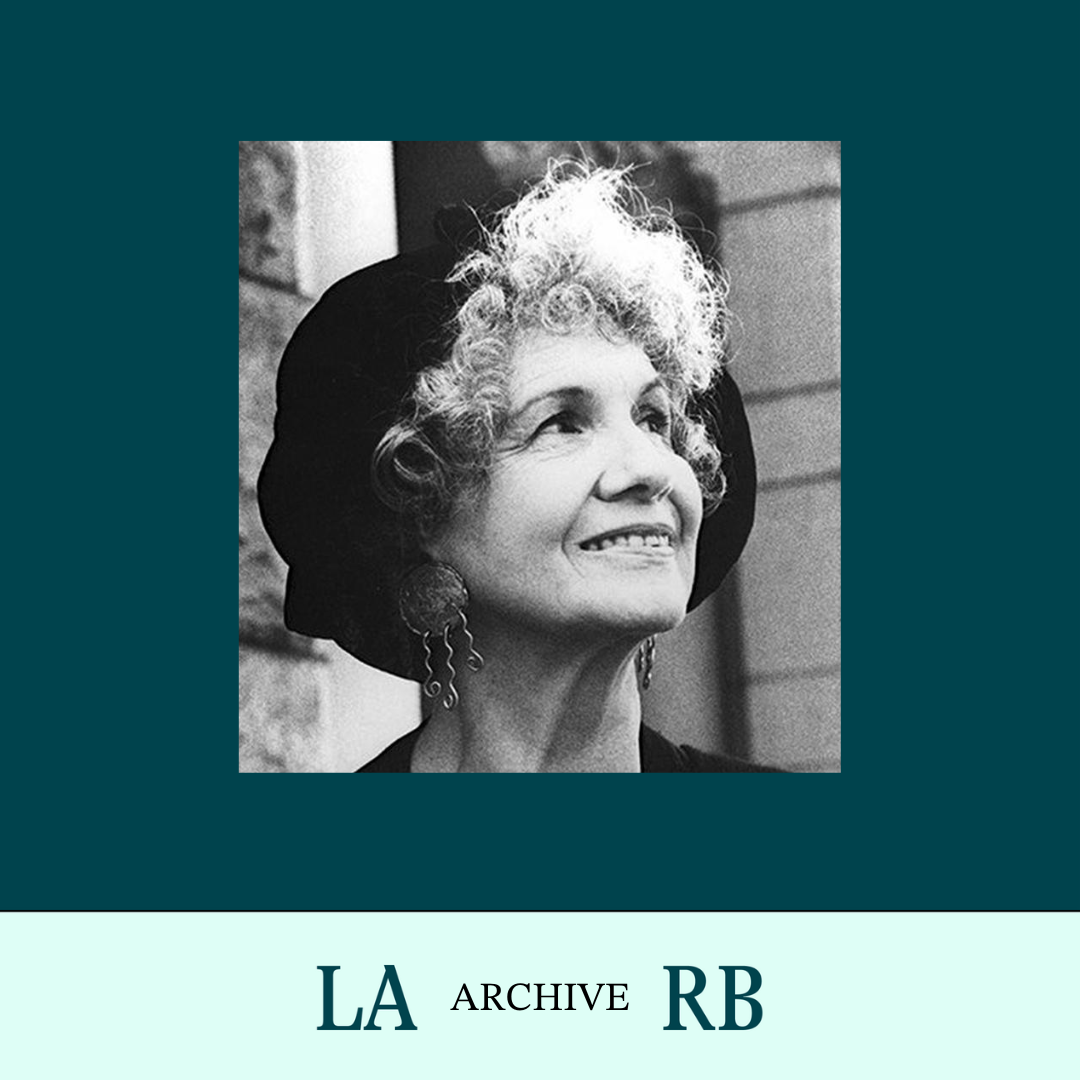It Was as If We Had Won: In Memory of Alice Munro
Ellie Eberlee reflects on a momentous loss for the literary community.
By Ellie EberleeMay 15, 2024

IN MEMORY of Alice Munro, 1931-2024.
The news of Alice Munro’s death found me in Toronto’s Pearson Airport. Air Canada, Terminal 1; International Departures. It came, funnily enough, from another LARB editor—and because no one slumped in the row seats around me seemed wildly concerned by the loss, it was to my Los Angeles colleagues that I expressed my shock, over Slack: Canada’s great literary legend had died. “It happens to the best of us,” typed one. “And the worst of us,” added another. Sure, I wanted to say, but not to Alice Munro.
It feels slightly disingenuous for me to preach about the late Nobel Laureate’s so-enormous-as-to-seem-immortal presence, her otherworldly yet eminently human grasp of experience and the words with which to conjure it. Make no mistake: I’ve come to gather close—even to claim, albeit shyly, as mine—the northern air she cleared; the simultaneously beautiful and empty expanses she found narrative shape for; the language she lifted out of small-town Ontario and offered, through story after story, to the world. Yet despite growing up in my own tiny corner of Ontario, just over an hour’s drive from Wingham, where Munro was born, I read my first piece of hers only after I’d moved to Vermont for college, leaving behind rural Canada—or so I thought—for good.
The story was “Passion,” and it had been assigned by a gruff yet beloved professor in an introductory creative writing class. Studying the slanted, twice-stapled photocopy in my dorm room, I felt like I was holding a fragment of stone chipped straight from the humped stretches of the Canadian Shield I grew up exploring—weighty and ridged, punctured by uncertain growth, part of something too big and too old to wrap my 17-year-old head around. One thing, though, was obvious. There, in my hands, was all that I thought I’d sworn off: roots, fissures. Bedrock.
With that realization came possibility. Home wasn’t fixed in place or marked by borders. Family wasn’t something I had to choose between sticking with and leaving behind. I could take both with me—often, as Munro’s stories remind us, we don’t have a choice. And I have, through collections like Hateship, Friendship, Courtship, Loveship, Marriage (2001), Too Much Happiness (2009), and Dear Life (2011). They’ve traveled in suitcases from Vermont back to Toronto, from England to my current apartment in Brooklyn. They’re among the books I’ll pack when I move to L.A. later this summer.
Unsurprisingly, there’s been an outpouring of grief and gratitude following yesterday’s announcement. At LARB, we’re pulling up two pieces from our archive. Elissa Schappell, who celebrated Munro’s Nobel victory in a piece published in 2013, also read the internationally acclaimed short story writer for the first time in her college years. Though her brief essay champions the “tightness of Munro’s stories,” she avers that “one of the things I most admire, and for me what makes them so enduring, is that often the ending is left open. […] The characters continue to breathe and live, just as we do.” Schappell’s piece was published alongside Kyle McCarthy’s tribute to the author’s universality: “We all love Alice Munro,” he explained, “we all want to write like her. Her Nobel Prize thrilled us; it was as if our team had won, as if we had won.” In another LARB essay, this one from 2021, the Canadian translator Anand describes the privilege of translating Munro’s work into Hindi, as well as the bizarre, largely unsuccessful experience of trying to get the sheer breadth of her achievements recognized—one which led him to “wonder who else could be standing on guard for Canada’s culture.”
Who, in the wake of this international departure, indeed?
LARB Contributor
Ellie Eberlee is the managing editor of the Los Angeles Review of Books.
Did you know LARB is a reader-supported nonprofit?
LARB publishes daily without a paywall as part of our mission to make rigorous, incisive, and engaging writing on every aspect of literature, culture, and the arts freely accessible to the public. Help us continue this work with your tax-deductible donation today!